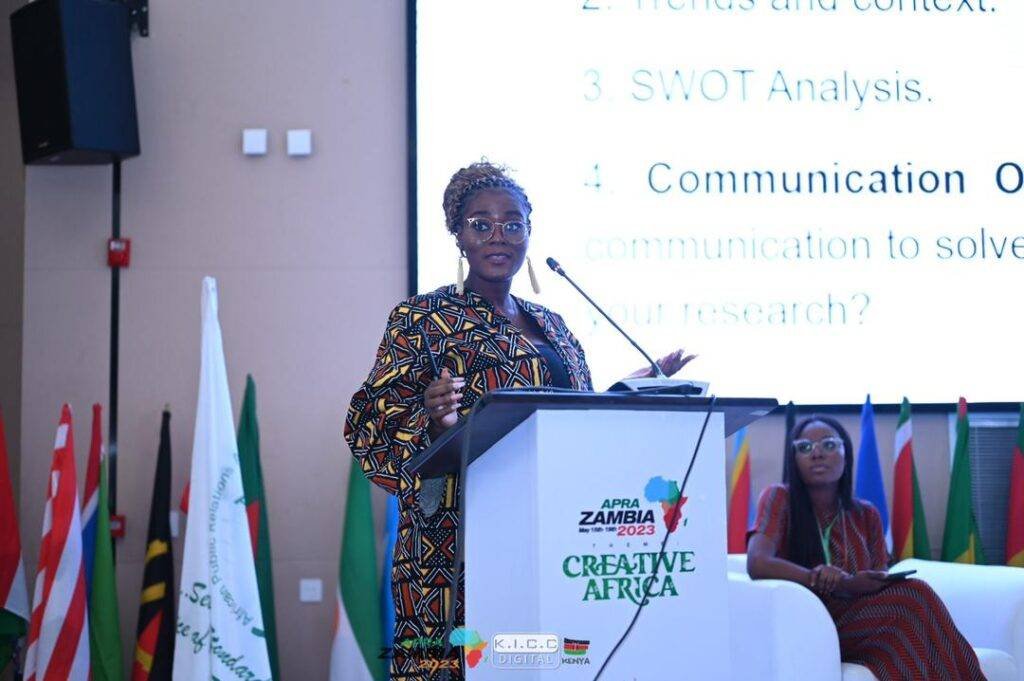Hot!
Antoinette Gyan …Mapping career path for young people

Bold, beautiful and elegant Ms Gyan
Graduate unemployment is a major headache for governments globally with Ghana not singled out of the equation.
Career decisions usually lead to a state of uncertainty, considering the fact that the so-called white-collar jobs (the most reason young people attain certain qualifications) are either not available or being contested by hundreds.
In a bid to assist young people in finding the right career path and not join the long queue of anxiously waiting unemployed graduates, Ms Antoinette Gyan, with her outfit Araba Africa, is gradually carving a niche as the pathway to employment.
Antoinette Gyan is an epitome of beauty and brains. The Career Coach and Communications Consultant has for the past years mapped the career path for young people, ensuring that they choose the right courses and essentially gain employment after school.

Ms Gyan,holds a Master’s degree in Communication Studies and a Bachelor’s Degree in English and Psychology both from the University of Ghana, Legon. She is also an accredited Public Relations Professional and a Certified Coach from Transformation Academy, an online training institution that specialises in providing personal development and life coaching training.
‘Araba Africa’ is a brand name she got from her paternal grandmother, Araba, whom she was named after. Granny was a thriving woman, ambitious and joyful; virtues which remains Ms Gyan’s wishes for every woman.
With her tag line ‘Live Beautifully,’ she provides coaching for mid-career African female professionals stuck in their careers. She also provides tools that help them to build mental acumen, with relevant skills such as leadership, communication and networking as well as a career plan that would help them to advance and take up leadership roles.
Ms Gyan started her coaching career in 2020 with a blog for young people called ‘Young Smart Africa’ in a bid to share insight with young people to have self- leadership and a mindset of success.
What she does, has provided many individuals with clarity in their careers, improved their confidence in communication, built empowering mindset, landed them their dream jobs and built their career vision.
She is currently working as a Communications Consultant (on a writing assignment) with the United Nations Volunteer office in Amman, Jordan.
In previous roles, she worked as Communications Officer (adolescent and youth engagement) for UNICEF Ghana, then Communications Manager for Plan International Sierra Leone and Communications Specialist for Plan International Ghana. She also took up other jobs in marketing, arts and crafts as well as teaching in the past.
With her experience on the job market, she believes that young people require guidance in choosing a career.

In her view, many young people have found themselves in careers that they don’t enjoy; perhaps they might have gone in for the wrong reasons and with little guidance.
Essentially, she believes that perfect career selection requires several elements including career vision, values, skills, education and goals.
“People think your career starts when you start working, however, it starts when you choose your course of study. Another important thing to know is that your career is ever-evolving. A career path should not feel like a death sentence that you cannot make a change once you start on a certain path. If I have to give one advice, I would say look at your best skills to determine your career path. Your skills and talents are your cues,” she advised.
“Information is key. Any opportunity to provide information that transforms lives and careers is what I do. My hope is that young people are able to make informed decisions along their career path,” she said.


She shared her insight on entrepreneurship, describing it as an interesting path that is not for everyone, hence, the need to guide people who feels entrepreneurship is the solution to their personal transformation.
Despite making a huge mark with her profession, it has not been without challenges with her concern being the lack of urgency from young people.
Ms Gyan is usually surprised by people’s conviction to take a certain path, achieve a particular goal yet not willing to do what is required to get to the top of it. People’s lack of willingness to get what they truly want is a major challenge.
To help provide more perspective about choosing a career path, she launched her book ‘Odd Numbers: Building a Meaningful Career’ in June this year.
In the three-part book, she shares intimately with readers her internal monologues on career development, dealing with fear and getting stuck among others.
Part one and two focuses on career planning course, with part three on blogs she wrote since the Covid-19 outbreak in 2019.
This book has been described as a healing book, which allows readers for the first time to come to terms with the everyday challenges of career development.
She advised young people to grab copies of the book to gain information on career development to make well-informed decisions and prepare a career plan that would help them grow.
Her hobbies include reading, dancing, yoga and interior design and she is focused on holding the hands of the upcoming generation to choose the right careers to gain employment after graduating from school.
By Michael D. Abayateye
Hot!
Is the “Rev” title biblical?

In many Ghanaian churches, pastors are often introduced as “Reverend” or simply “Rev.”
The title is seen as a mark of respect, yet its biblical basis continues to stir debate.
While some Christians argue that it is a harmless way to honour church leaders, others insist it is unbiblical and should not be used at all.
Those who question the title usually point to the Bible itself. Nowhere in Scripture did Jesus or the apostles use “Reverend” for themselves or for one another.
Instead, they addressed each other as “brother” or “servant.” In Matthew 23, Jesus even warned his followers not to seek titles such as “rabbi” or “father,” teaching that all believers are equal under one God.
Critics also note that Psalm 111:9 describes God’s name alone as “holy and reverend” in the King James Bible.
To them, this means the word should be reserved for God, not for human beings. Others go further, citing Job 32, which cautions against giving flattering titles to men.
For such voices, the modern use of “Reverend” risks elevating pastors beyond what the Bible prescribes.
On the other hand, defenders of the title argue that it is not meant to replace God’s reverence but simply to acknowledge a minister’s role.
In many churches, “Reverend” is given to ordained ministers who have undergone training, much like the way a doctor is addressed as “Dr.”
The Bible itself, they point out, encourages believers to honour their leaders, with 1 Timothy 5:17 stating that elders who direct the affairs of the church well are “worthy of double honour.”
In this sense, the title is seen as a formal courtesy rather than a theological statement.
Supporters remind critics that Christianity does not operate in a vacuum but within cultural settings.
In Ghanaian society, respect for elders and authority is central to social order. Just as chiefs are addressed with titles such as “Nana” or “Togbe,” many Christians believe it is fitting to extend a similar courtesy to church leaders.
In their view, calling a pastor “Reverend” reflects Ghanaian values of honour and respect, and does not amount to worshipping a human being.
Yet the debate is far from settled. Some argue that the title has been abused, with individuals presenting themselves as “Reverend” without any proper training or accountability.
Calls have even been made for the regulation of church titles to prevent confusion and protect the credibility of ministry. Others, however, see no harm in its continued use, so long as it is not taken beyond what Scripture allows.
At the heart of the matter lies a bigger question: should Christians stick strictly to biblical language when addressing their leaders, or is it acceptable to adapt titles as society evolves?
The conversation is not just theological but cultural, touching on how Ghana balances respect for tradition with the authority of Scripture.
The debate over the “Rev” title is therefore not one with easy answers. What is clear, however, is that it forces us to reflect on how we show honour, how we interpret the Bible, and how faith interacts with our cultural practices.
As the discussion continues in church pews and on social platforms, we ask you: should pastors and ministers be called “Reverend,” or should Christians abandon the title altogether?
By: Jacob Aggrey
Hot!
Police confirm arrest of two suspects in Asankrangwa murder case

The Western Central Regional Police Command has confirmed the arrest of two men in connection with the fatal stabbing of a 20-year-old man at the Asankrangwa Education Area on Sunday, August 17, 2025.
In a statement signed by the Head of the Public Affairs Unit, ASP Beatrice Turkson, the police said preliminary investigations revealed that the deceased was chased and stabbed multiple times by a group of people.
The incident is believed to have stemmed from a misunderstanding between the deceased and one of the suspects, identified as 36-year-old Kwasi Opong.
According to the police, swift action led to the arrest of Opong and another suspect, 23-year-old William Francis Osei. Both are currently in custody assisting with investigations, while efforts are underway to apprehend another suspect who is still on the run.
The police noted that the body of the deceased has been deposited at the Asankrangwa Catholic Hospital morgue for preservation and autopsy.
“The Command assures the public that all persons connected to this heinous crime will be brought to justice,” the statement said.
The police appealed to the public to provide any information that could assist in the ongoing investigations.
By: Jacob Aggrey






